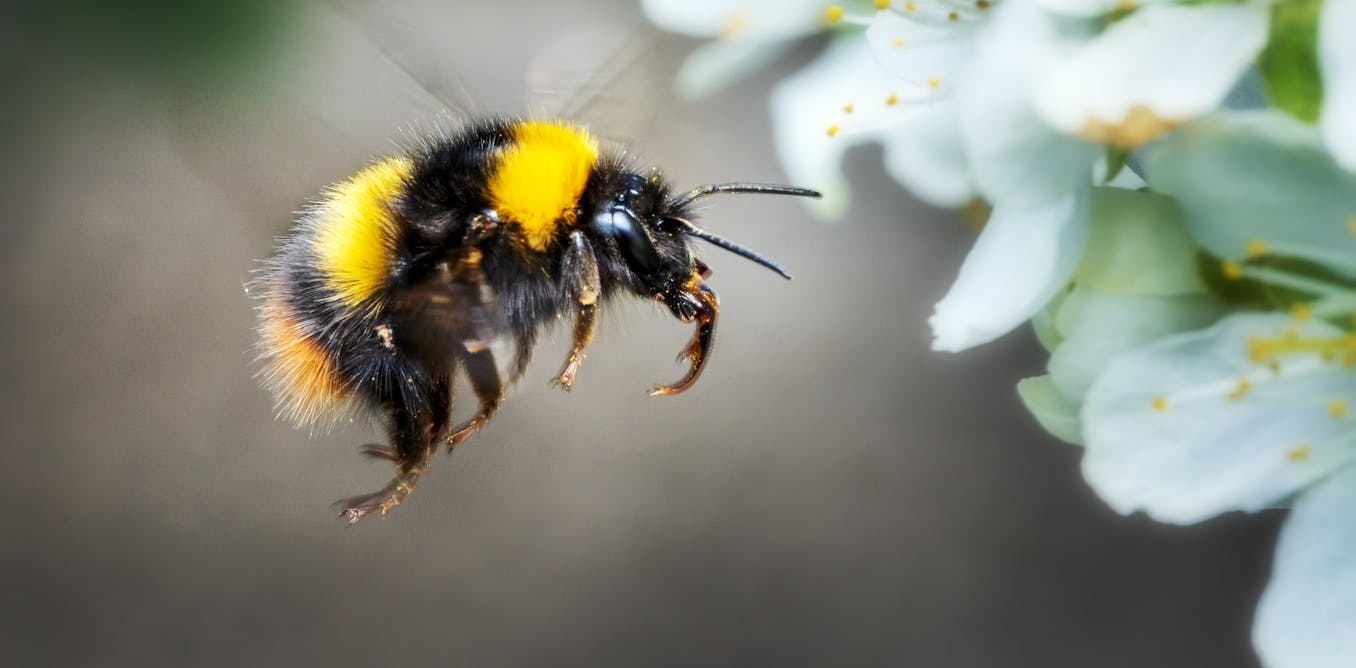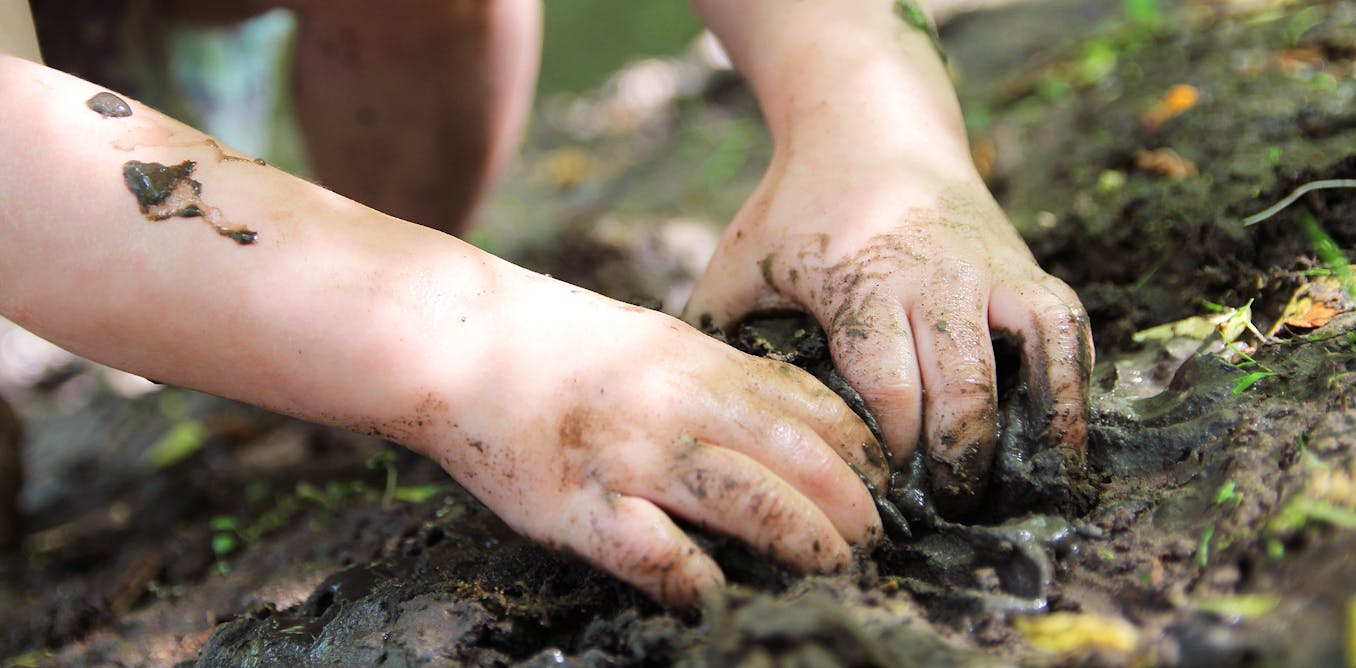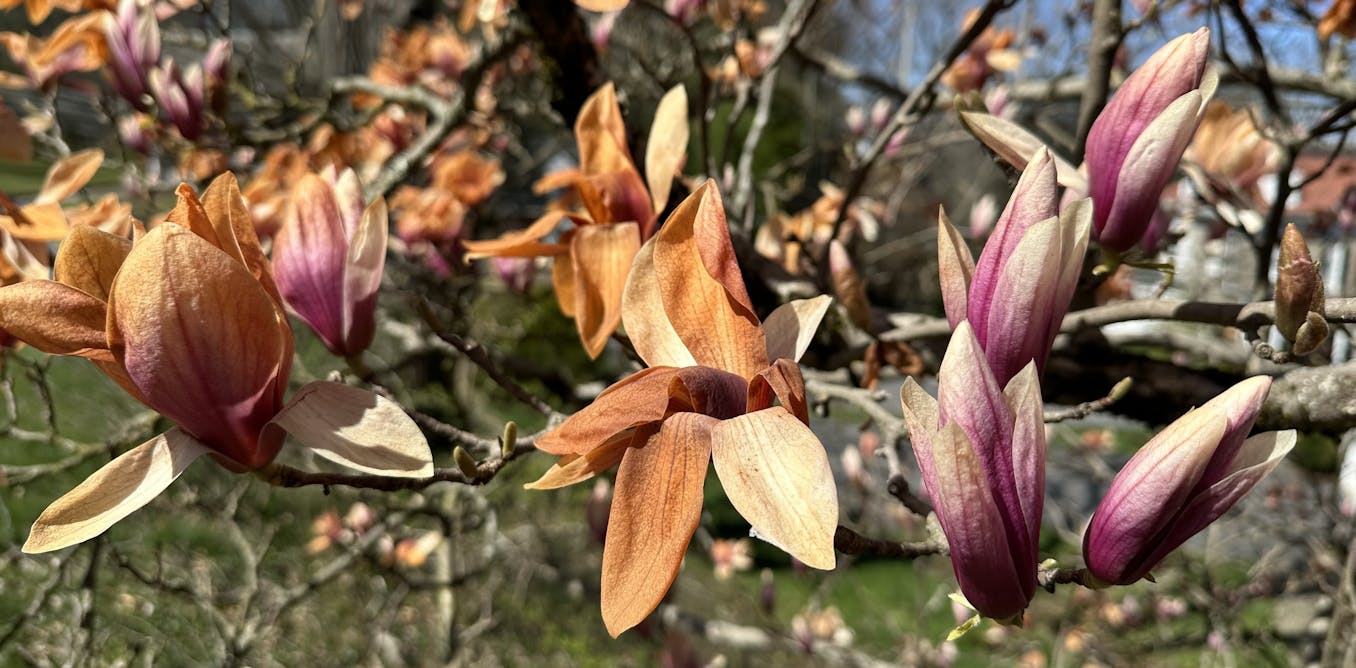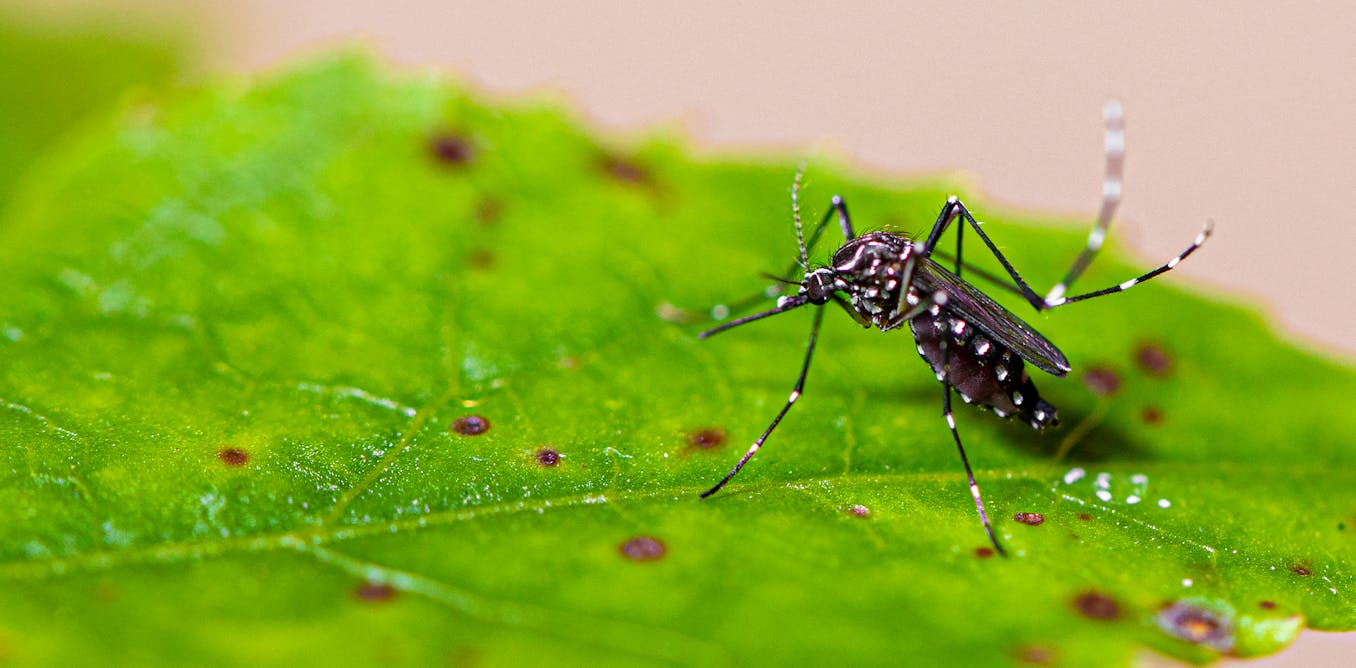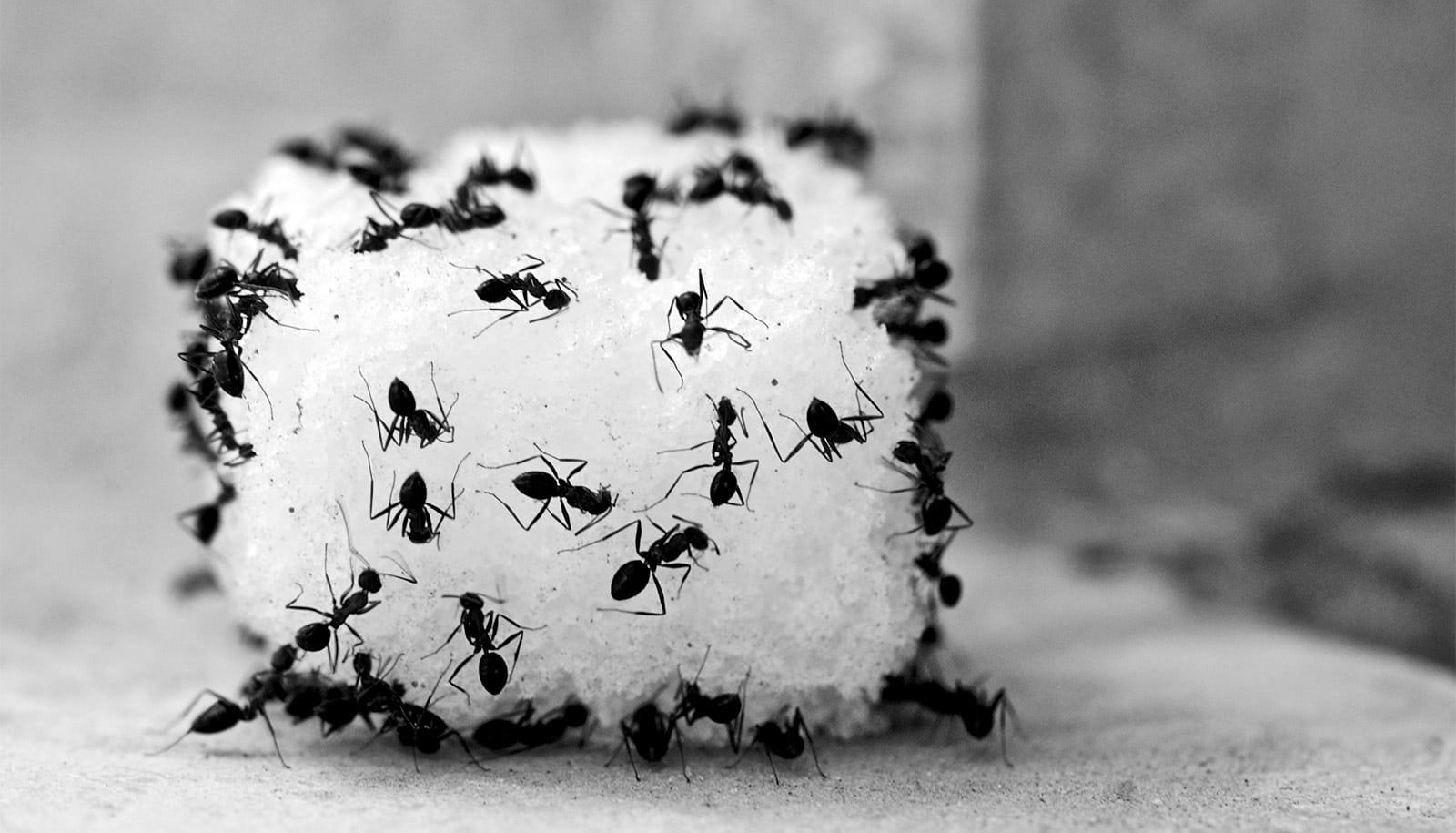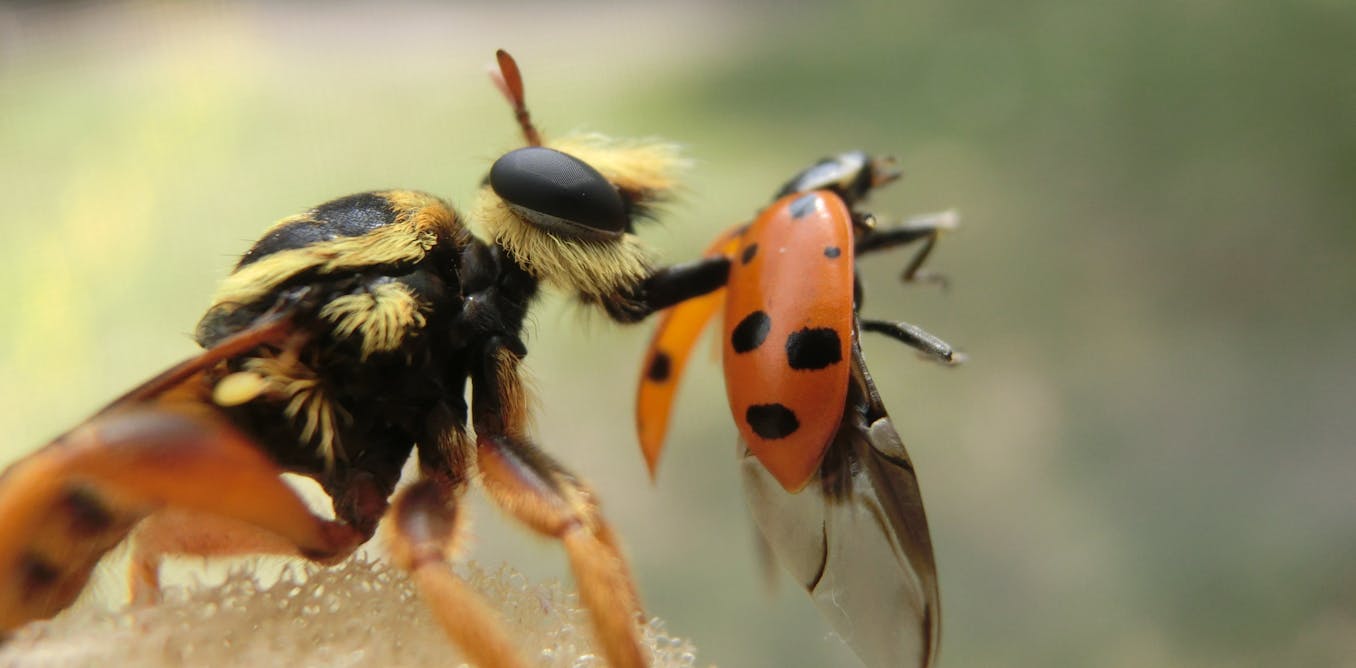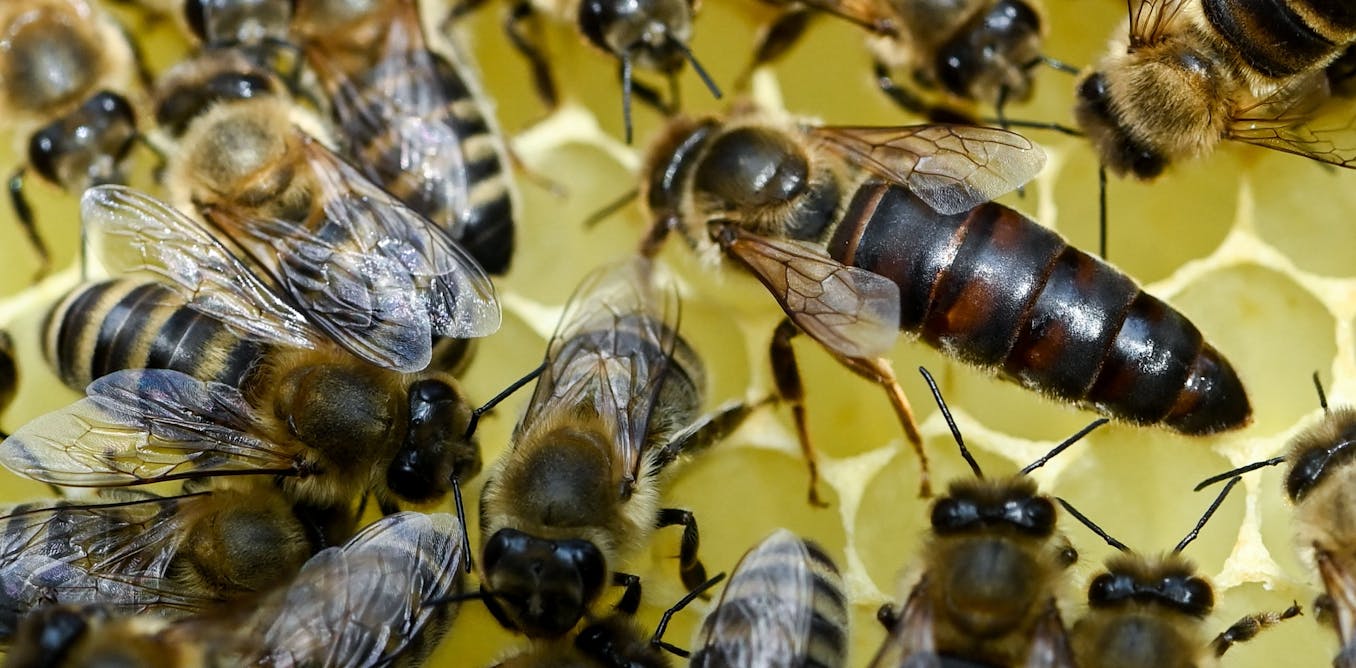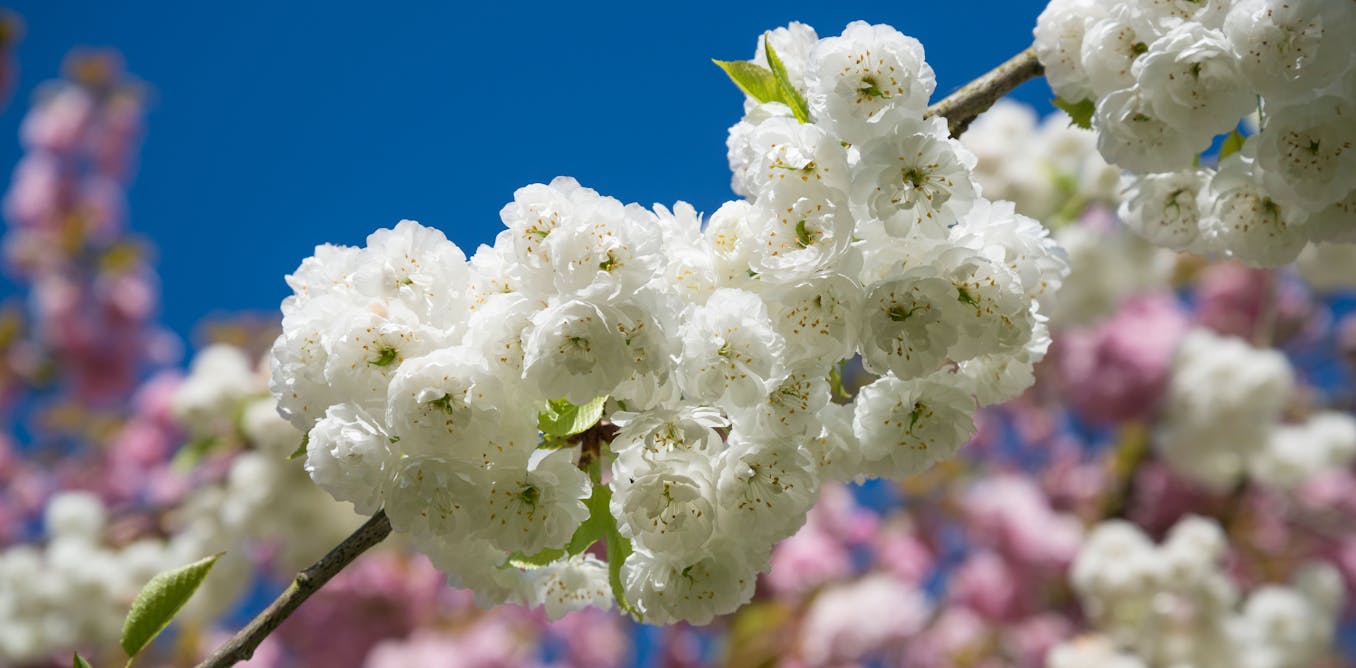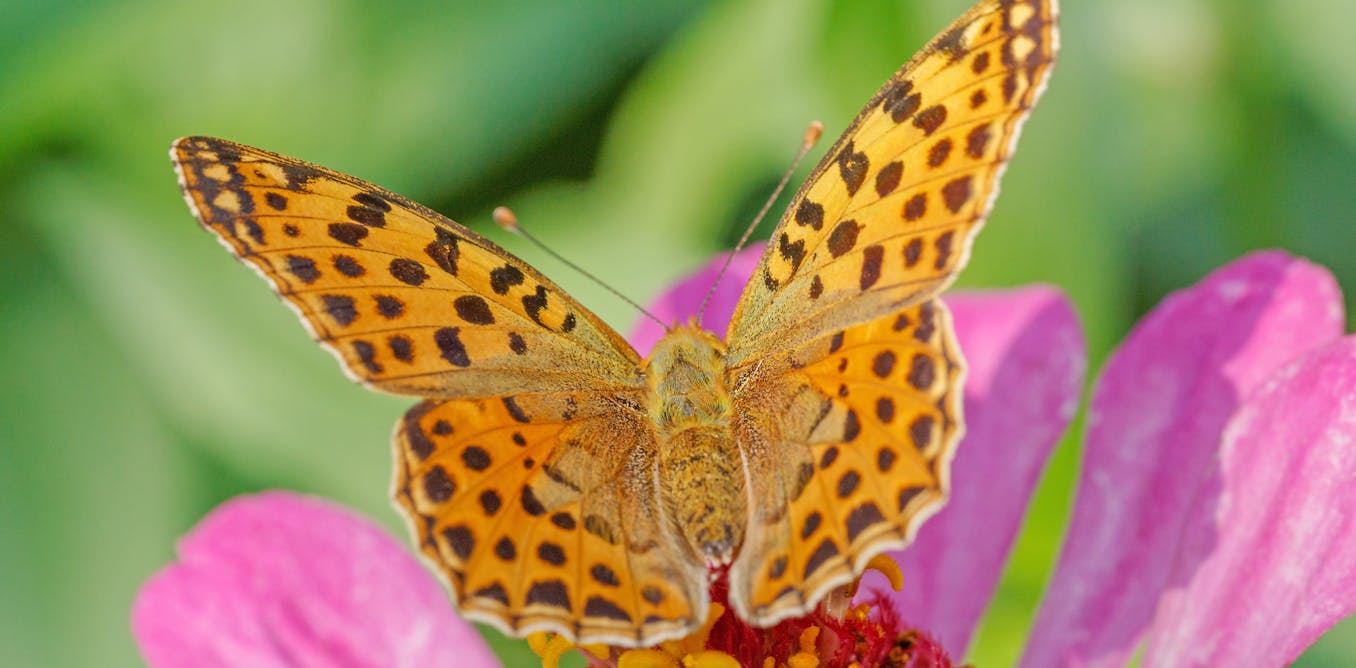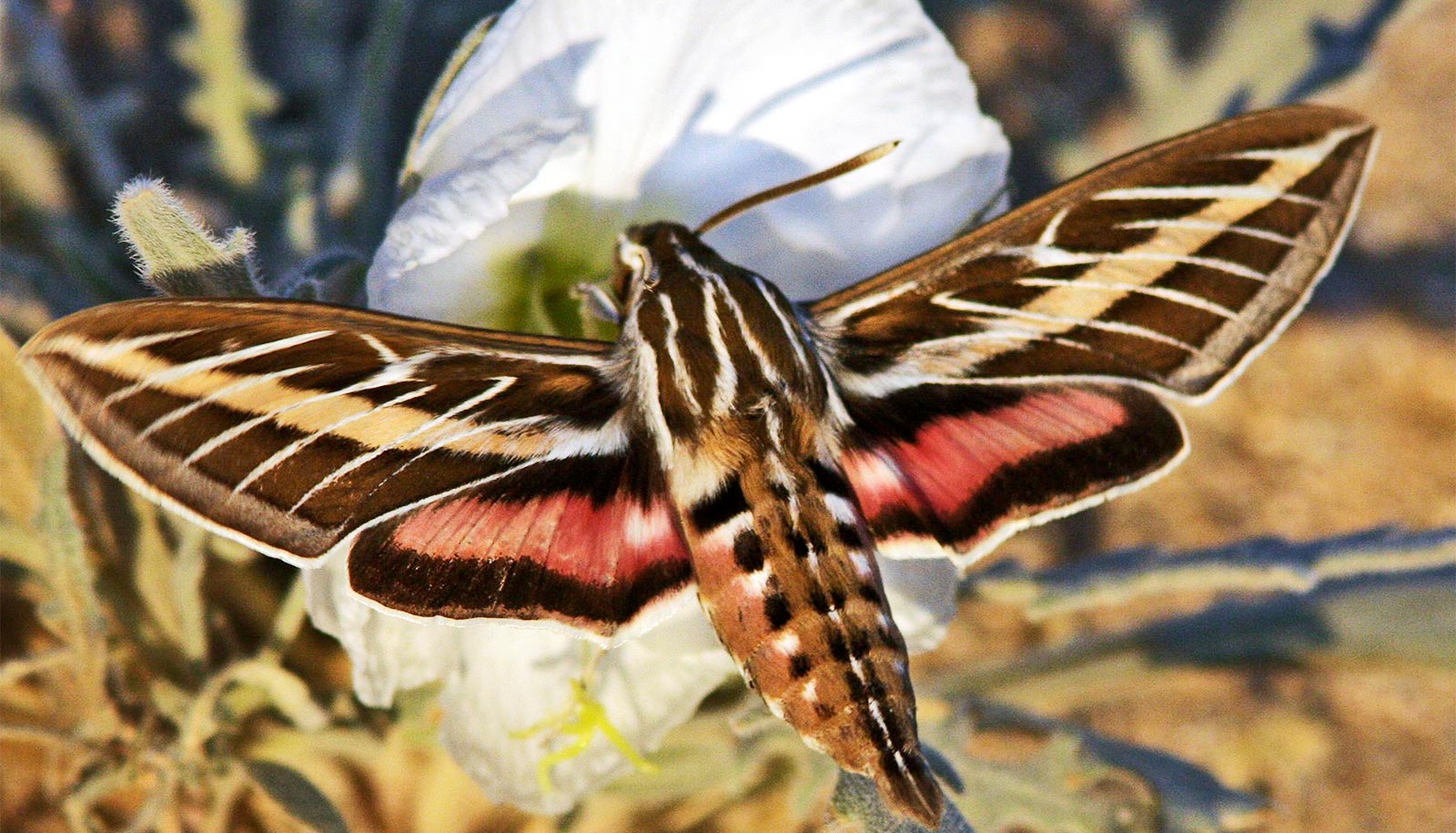What is dirt? There’s a whole wriggling world alive in the ground beneath our feet, as a soil scientist explains
Rock dust is only part of the story of soil. Living creatures, many of them too tiny to see, keep that soil healthy for growing everything from food to forests.
March 25, 2024 • ~7 min
Climate change is shifting the zones where plants grow – here’s what that could mean for your garden
The US Department of Agriculture has updated its plant hardiness zone map, which shows where various plants will grow across the country. Gardeners should take note.
March 22, 2024 • ~10 min
Female mosquitoes rely on one another to choose the best breeding sites − and with the arrival of spring, they’re already on the hunt
Female mosquitoes don’t want to lay their eggs alone, but they don’t want sites that are too crowded either. Understanding what guides their choice could inform new control strategies.
March 19, 2024 • ~8 min
Robber flies track their beetle prey using tiny microbursts of movement
Not much is known about the predator fly Laphria saffrana. New research identified how they count the wingbeats of their favored prey, letting it slip out of focus before adjusting their heads.
March 5, 2024 • ~7 min
Why do bees have queens? 2 biologists explain this insect’s social structure – and why some bees don’t have a queen at all
A queen’s main job in the hive is to lay eggs and pass genes on to offspring. But many bee species do just fine without queens or big colonies.
March 4, 2024 • ~7 min
Three ways climate change is pushing butterflies and moths to their limits
Climate change puts pressure on British butterflies and moths - sometimes pushing them to the edges of their geographical range or shifting the timing of their life cycle so they can’t feed.
Feb. 29, 2024 • ~8 min
/
36

